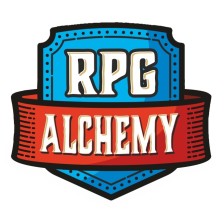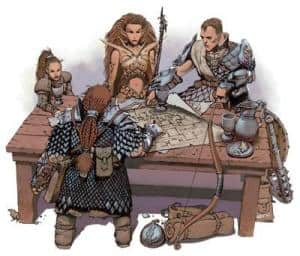For the most part the people I GM for have very few complaints about our game or my style of running our��games. I routinely ask players for feedback and input on��our campaign in order to ensure that I am providing them with the experience they’re looking for in an RPG. However, one topic that comes up frequently is campaign endings.
I think most of us have��run campaigns that failed to deliver an awesome conclusion. Maybe people lost interested or the player roster changed��due to��outside influences. Sometimes player or GM burnout can bring a campaign to a close or even anticipation of a new game coming out.
The past couple of games I’ve run I have worked diligently to ensure that the campaign ended well. My goal is to provide an exciting and satisfying wrap-up that feels like a completely story was told but still leaving the players wanting more.��I want my campaigns to end like Return of the Jedi; a complete story was concluded but the fans want to see more adventures with the characters they love!
Since I tend to run an extremely low-prep and improve-heavy��game it can be difficult to really plan for the campaign’s ending. So I’ve put together a few techniques to help me pull off epic conclusions to all of our campaigns.
Shift Focus
One thing that is important to keep in mind is that you’re telling a story in the lives of these characters, not telling their life story. The difference is important and reminding your players of this helps manage their expectations. We are here to tell an exciting story in the lives of these characters. It may not be the characters’��only story but it is the��story we’re��telling and focused on right now.
One of the techniques I use to help facilitate this campaign view is to help the players shift their story focus from their characters��to characters other than their own. Take Star Wars for example; Han, Luke, Leia and the other protagonists might be the primary characters (PC’s) in the story but the story isn’t really theirs. Star Wars (at least episodes 1 -6)��is the story of��Anakin��Skywalker/Darth Vader and the heroes are participants in his story. It is Vader’s life story; his rise, his fall, and his eventual redemption. For the heroes the story is just a chapter (or two) in their lives.
In a similar manner you can help facilitate a great campaign ending by thinking of the story in terms of an NPC’s story. That’s not to say that the NPC should overshadow the PC’s or enjoy more “screen time” then the PC’s, just that the conclusion of the NPC’s story may be a great place to wrap up your campaign. The villain’s ultimate defeat, the��crowning of the rightful queen, or the destruction of an artifact (an object’s story) could all usher in the end of a campaign in a very satisfying way.
Managing Expectation
Ending the campaign on a good note frequently comes down to getting everyone on the same page with their expectations. I’ve found over the years that it’s important to talk to your players about campaign expectations because of you don’t talk to them they will make up their own. Expectations can come from anywhere even from within the game’s own mechanics. For example, if you’re playing Dungeons & Dragons and your players see 20 levels listed in the Player’s Handbook, they may assume that your campaign is going to last for 20 levels.
Talk to your players and establish some expectations for the campaign’s duration. Perhaps the campaign will run for six months or until summer. Maybe you want to go until the PC’s reach a certain level or accomplish a certain thing. Whatever you (and the group) decide it can really help everyone at the table prep for, and enjoy the end of a great campaign.
Answer Questions
I pay a lot of attention to the questions that come up during the course of a campaign, especially the questions that the players mention to one another (as opposed to questions they ask me directly). I listen for questions about the setting, NPC’s, history, etc. The reason I focus on these questions is to ensure that I answer them during the course of the campaign. One of the things that helps players accept (and embrace) the end of a campaign is to feel that their questions have been answered.
Final Thoughts
Most of us GM’s put a great deal of work into the beginning and the middle of a campaign but often fail to put the same degree of care into the end. In order to wrap a campaign up in a rewarding manner it is important to plan for the end, from the beginning. Always have in mind ideas for concluding things even if you’re still a long ways off.

